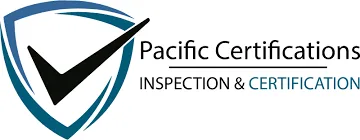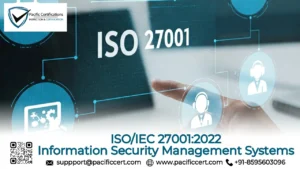What is ISO/IEC 27018:2019?

ISO/IEC 27018:2019 is an international standard that provides a framework for the protection of personally identifiable information (PII) in public clouds acting as PII processors. It is specifically designed for cloud service providers that process personal data on behalf of their customers. The standard outlines the necessary controls and practices for ensuring that PII is handled securely and in compliance with data protection regulations. ISO/IEC 27018 helps organizations show their commitment to protecting personal data, enhancing privacy, and building trust with their clients.
The standard is an extension of the ISO/IEC 27001 Information Security Management System (ISMS), with a specific focus on the security of personal data in the cloud environment. Organizations that implement ISO/IEC 27018 can better manage the risks associated with the processing of PII, reduce the likelihood of data breaches, and ensure that they meet legal and regulatory requirements.
For more information, contact us at support@pacificcert.com.
Purpose
The purpose of ISO/IEC 27018:2019 is to provide cloud service providers with guidelines to protect personally identifiable information (PII) that they process on behalf of their clients. It helps organizations ensure that they implement the necessary security and privacy controls to safeguard PII and comply with data protection laws and regulations.

By following ISO/IEC 27018, organizations can show their commitment to privacy protection and build trust with customers who rely on cloud services to store or process personal data.
Scope and Applicability
ISO/IEC 27018:2019 applies to cloud service providers that act as PII processors, specifically in public cloud environments. It is intended for organizations that provide cloud computing services, including infrastructure, software, and platform services, to businesses that store or process personal data.
The standard is applicable across all industries, including healthcare, finance, retail, and government, where sensitive personal information is handled. ISO/IEC 27018 helps organizations meet both international and local privacy regulations and ensures that they process PII in a secure, responsible, and compliant manner.
Key Definitions
- Personally Identifiable Information (PII): Any data that can be used to identify an individual, such as names, contact details, social security numbers, and other personal identifiers.
- Cloud Service Provider (CSP): A company or organization that provides cloud services, including infrastructure, platforms, and software, to customers.
- PII Processor: An organization that processes personal data on behalf of another organization, often as part of a cloud service arrangement.
- Data Controller: The organization or entity that determines the purposes and means of processing personal data.
- Data Processor: An organization or entity that processes personal data on behalf of a data controller, typically in accordance with the controller’s instructions.
Clause-wise structure of ISO/IEC 27018:2019
Clause Number | Title | Description |
Clause 1 | Scope | Defines the scope of the standard and specifies its applicability to public cloud services acting as PII processors. |
Clause 2 | Normative References | Lists the referenced standards and documents supporting ISO/IEC 27018. |
Clause 3 | Terms and Definitions | Provides key terms used in the standard for clarity and consistency. |
Clause 4 | General Requirements | Outlines the general requirements for organizations processing PII in the cloud, focusing on privacy and security controls. |
Clause 5 | The Privacy and Security of PII | Details the privacy controls that cloud service providers should implement to protect PII. |
Clause 6 | Transparency and Accountability | Emphasizes the need for transparency regarding how PII is processed and the importance of accountability in data handling. |
Clause 7 | Data Breach and Incident Management | Provides guidelines for handling data breaches and incidents involving PII, including reporting and mitigation strategies. |
Clause 8 | Customer Rights | Outlines the rights of customers regarding their PII and how cloud service providers should support these rights. |
What are the requirements of ISO/IEC 27018:2019?
ISO/IEC 27018:2019 provides specific requirements that organizations must adhere to when processing PII in the cloud. These include guidelines for ensuring the security, privacy, and compliance of PII handling practices. Key requirements include:

- Organizations must ensure that they process PII only on the basis of the customer’s consent or another legal basis, as required by applicable data protection laws.
- Organizations should collect and process only the PII that is necessary for the specific purposes for which it was collected.
- Strong access controls must be implemented to ensure that only authorized personnel can access PII.
- Data at rest and in transit must be encrypted to ensure its confidentiality and integrity.
- Organizations must have processes in place to detect and report data breaches involving PII within a specified time frame.
- Cloud service providers must ensure that sub processors (third-party service providers) involved in the processing of PII also comply with ISO/IEC 27018 and similar privacy protection measures.
For more information, contact us at support@pacificcert.com.
ISO/IEC 27018 Certification: Audit Checklist
- Have cloud roles and responsibilities between the provider and customer been clearly defined and documented?
- Is virtual machine configuration securely managed and isolated in multi-tenant cloud environments?
- Are procedures in place for the secure return, deletion, or migration of customer assets after contract termination?
- Is administrative access by cloud service customers properly controlled and monitored by the provider?
- Are cloud-specific security requirements addressed in the service agreement (data location, jurisdiction etc.)?
- Is customer activity within the cloud environment logged, monitored, and reviewed for anomalies?
- Are customers informed of any changes that may affect cloud service security controls or SLAs?
- Are measures implemented to segregate and protect customer data in shared infrastructure setups?
- Is there a documented process for handling cloud-specific incidents and notifying affected parties?
What are the benefits of ISO/IEC 27018 Certification?
ISO/IEC 27018 certification shows that organizations prioritize the protection of personal data and helps build trust with customers. The benefits of certification include:

- Certification ensures that PII is handled in a secure and compliant manner, reducing the risk of data breaches.
- Certification upgrades credibility by demonstrating that the organization follows strict privacy and security standards.
- Certification helps organizations meet the requirements of data protection laws such as the GDPR (General Data Protection Regulation) and CCPA (California Consumer Privacy Act).
- Organizations with ISO/IEC 27018 certification differentiate themselves in the marketplace, offering privacy-conscious cloud services.
As privacy concerns and data protection regulations continue to evolve, the demand for ISO/IEC certification is expected to rise significantly in the recent years. Organizations will increasingly prioritize secure cloud services that protect PII and ensure compliance with global data protection laws. Cloud service providers that adopt ISO/IEC will gain a competitive edge by offering customers transparent and secure data processing practices.
Certification Process
The certification process for ISO/IEC 27018 typically includes the following steps:
- Pre-Certification Assessment: Conducting a gap analysis to identify areas for improvement in the organization’s PII processing practices.
- Documentation Review: Reviewing the organization’s policies, procedures, and documentation to ensure they meet ISO/IEC requirements.
- Stage 1 Audit: A preliminary audit to assess readiness for certification and identify potential issues in PII processing.
- Stage 2 Audit: A comprehensive on-site audit to evaluate the implementation of security and privacy controls in cloud services.
- Certification Decision: Certification is awarded once the organization meets all requirements.
- Ongoing Monitoring: Regular surveillance audits to ensure continued compliance with ISO/IEC 27018.
Timeline for ISO/IEC 27018 Certification
The timeline for ISO/IEC 27018 certification generally spans several months. The pre-assessment and preparation phase takes 1-2 months, during which the organization reviews its current security practices. The Stage 1 audit usually lasts about 1 month. The Stage 2 audit, which involves a more overreaching evaluation, takes 1-2 months. Certification issuance occurs within 3-6 months, depending on audit findings and the organization’s readiness.
What is the Cost of ISO/IEC 27018:2019?
The cost of ISO/IEC 27018 certification varies depending on several factors, including the size of the organization, the complexity of its cloud services, and the number of locations involved.
Audit Fee is the Fee for the certification body’s audit process. Training costs are the costs for educating staff on ISO/IEC certification and the necessary processes for compliance. Ongoing maintenance are the costs for regular audits and recertification required every 3 years.
How Pacific Certifications Can Help?
At Pacific Certifications, we provide comprehensive auditing and certification services for ISO/IEC 27018. Our team will guide you through the entire certification process, ensuring that your organization meets the highest standards for data protection in cloud services. Our services include:
- Stage 1 and Stage 2 audits to evaluate privacy and security controls.
- Objective conformity assessments based on ISO/IEC certification.
- Certification issuance upon successful completion of the audit.
- Ongoing surveillance audits to ensure continued compliance.
- Support for multi-site or global operations.
For audits and certification, contact support@pacificcert.com.
ISO/IEC 27018 Training and Courses
Various training courses are available to help organizations comply with ISO/IEC 27018, including:
- Lead Auditor Training – Equips professionals to conduct external third-party audits.
- Lead Implementer Training – For those responsible for planning and executing ISO/IEC 27018 implementation.
- Internal Auditor Training – Preparing internal auditors for certification audits
Pacific Certifications provides accredited training programs. If your organization is looking for ISO/IEC training, our team is equipped to help you, contact us today at support@pacificcert.com
Frequently Asked Questions (FAQs)
How long does it take to get ISO/IEC 27018 certification?
The certification process typically takes 3–6 months, depending on your organization’s preparedness and audit outcomes.
Is ISO/IEC 27018 certification mandatory for all cloud service providers?
While it is not legally required, ISO/IEC 27018 certification helps cloud service providers show their commitment to privacy and data protection, building trust with customers.
What are the main benefits of ISO/IEC 27018 certification?
Certification improves security, ensures compliance with data protection regulations, builds customer trust, and provides a competitive advantage in the cloud services market.
Can I apply for ISO/IEC 27018 certification without a privacy management system in place?
No, a comprehensive privacy management system must be in place before applying for certification to ensure compliance with ISO/IEC 27018.
How often do I need to renew ISO/IEC 27018 certification?
ISO/IEC 27018 certification is valid for three years, after which recertification is required.
Contact Us
If you need support with ISO/IEC 27018 certification, contact us at support@pacificcert.com.
Read More at: Blogs by Pacific Certifications






